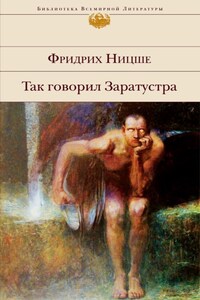Smollett bears witness to the popularity of Defoe's Colonel Jacque. In the sixty-second chapter of Roderick Random, the hero of that novel is profoundly impressed by the genius of the disappointed poet, Melopoyn, the story of whose tragedy is Smollett's acrimonious version of the fate of his own first literary effort, The Regicide. Melopoyn tells Random that while waiting in vain for his tragedy to be produced, he wrote some pastorals which were rejected by one bookseller after another. A first said merely that the pastorals would not serve; a second advised Melopoyn to offer in their place something "satirical or luscious;" and a third asked if he "had got never a piece of secret history, thrown into a series of letters, or a volume of adventures, such as those of Robinson Crusoe and Colonel Jack, or a collection of conundrums, wherewith to entertain the plantations?" Smollett probably wrote this passage some time in the year 1747, for Roderick Random was published in January, 1748. It was twenty-four years earlier-December twentieth, 1722-that Colonel Jacque had been published, or, to give it the name set forth by its flaunting title-page: -The History and Remarkable Life of the truly Honourable Colonel Jacque, vulgarly called Col. Jack, who was born a Gentleman; put 'Prentice to a Pickpocket; was six and twenty years a Thief, and then kidnapped to Virginia; came back a Merchant; was five times married to four Whores; went into the Wars, behaved bravely, got Preferment, was made Colonel of a Regiment; came over, and fled with the Chevalier, is still abroad Completing a Life of Wonders, and resolves to die a General. Surely a book for servants, readers of our time will be apt to think on looking at this title-page; and yet Colonel Jacque is found to-day in many a gentleman's library. This is no reason, though, why it should still retain considerable popularity in Smollett's day. In less time after their appearance, some books which live forever in literature have been forgotten by the great mass of readers. What was it now that kept Colonel Jacque popular a quarter of a century after its publication?
It can hardly be the story which maintained its popularity, for the inorganic tale is of the simplest kind. Jacque, like Captain Singleton, and Moll Flanders in her childhood, had almost no knowledge of his parents. He was brought up by a woman who was well paid for taking the child off his parents' hands-a woman who, though seemingly an abandoned character, nevertheless showed the boy kindness. When he was about ten, she died. Then followed the chequered career sketched in the title given above. Jacque, trained by a comrade as a pickpocket, became in time a thief on a larger scale, but not a thief quite destitute of good feeling. After he had robbed a poor woman of Kentish Town of 22s. 6½d., his conscience was never easy till he paid her back the money, a year later; and through all his criminal life, he remembered that his foster-mother had told him he came of gentle blood, and accordingly should remember always to be a gentleman. The hope of being a gentleman was before him, even when he was kidnapped to Virginia and sold into bondage. There he became such a favourite of his master that in time he was able to set up as a planter on his own account. From Virginia he returned to England, and thence, after the unhappy matrimonial ventures mentioned in the title, he went back to Virginia, where at last he married the wife whom he had previously divorced.
Nor could the character of the hero have had much to do in keeping Colonel Jacque popular. In spite of his matrimonial achievements, in spite of the affection which he rouses in his American employer and his slaves both, Colonel Jacque is with out any attraction which a reader can perceive to-day. Like most of Defoe's characters, he is without fine feeling; he is always looking out for the main chance. His chief interest is commerce; he is a typical "Anglo-Saxon" trader. There are thousands and thousands of such clever, prosy, cold-blooded business-men in the United States to-day, and in the British colonies, and in the United Kingdom. Though Defoe's biographers are divided as to whether or not he shared their mercantile cleverness, there is no doubt that Defoe was heartily in sympathy with such men; and his interest in recounting Colonel Jacque's commercial ventures shows him to have been what I have already called him-the Yankee trader of the Queen Anne writers.
It was the story of Colonel Jacque's successful trading, no doubt, which had a large part in sustaining the popularity of his History. But even more important in this respect, was that which we have seen to be the vital force in all Defoe's fiction-circumstantial vividness. This is less striking in the later pages than in the earlier. The vividness ceases to a large extent after Jacque goes to America, for Defoe did not know America so well as he knew his England. Yet even when the scene shifts to the further side of the ocean, Defoe makes no blunders; nothing impossible occurs; his geography is correct. In














